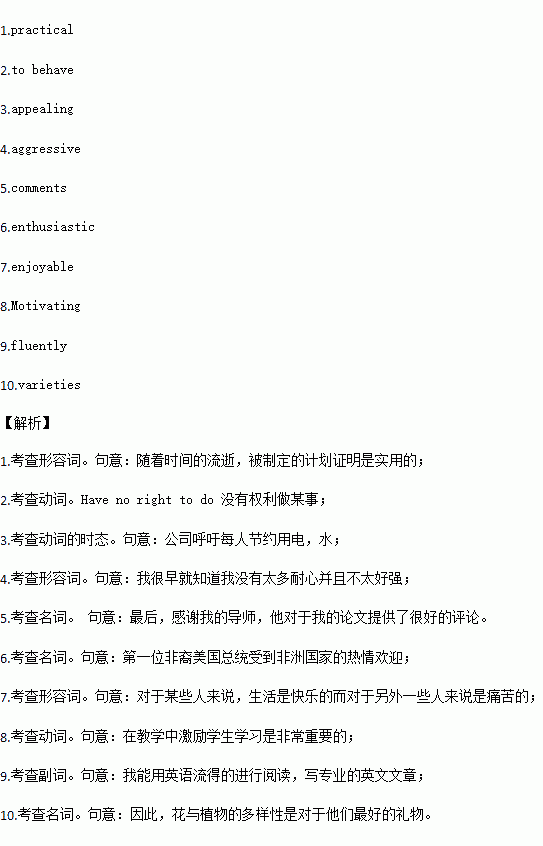题目内容
第二节:单词拼写:(每空1分,共10分)(命题人:吴书颖)
1.As time went by, the plan stuck to proved fairly ____________(实用的).
2.Whatever his problems, he has no right __________(表现)like that.
3.The company is__________(呼吁)everyone to save power and water.
4.I learned early in life that I had to be more patient and less __________(好斗的).
5.Finally,my thanks go to my tutor, who has offered a lot of suggestions and__________(评论)on my paper and polished every page of my draft.
6.The first African-American president of the United States received an e__________(热情的)welcome in the African countries, where he was received as a returning son.
7.To some people life is e__________(令人愉快的), while to others it is suffering.
8.M_________ (激励)students learning is ever forever the most important issue in teaching.
9.I could read medical literature __________(流利地) in English and write professional English articles.
10.So, different__________(多样性)of flowers and plants can be the best gift for them.

